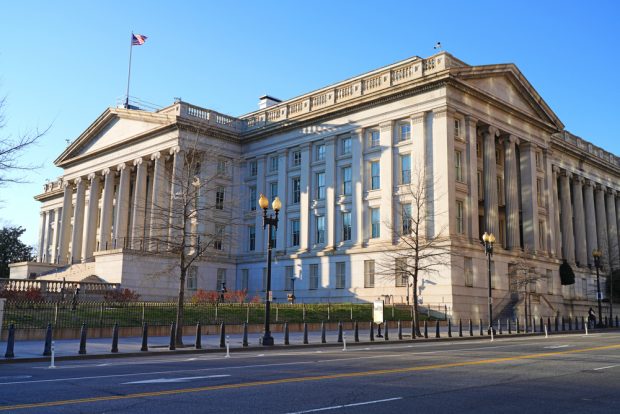 U.S. Department of Treasury building in Washington, D.C. (Source: Shutterstock)
U.S. Department of Treasury building in Washington, D.C. (Source: Shutterstock)
The Treasury Department should not continue to give low-income credit unions an unfair 'free pass' in Community Development Financial Institution certification, the American Bankers Association said Thursday.
"With nearly half of all credit unions now classified as 'low-income,' we question whether the NCUA's 'low-income' designation accurately identifies credit unions that are committed to the development of low income and under-served communities," Joseph Pigg, the ABA's senior vice president for fair and responsible lending, said, in a letter to Treasury Department officials.
Recommended For You
The Treasury Department has been soliciting comments on proposed changes to the CDFI application process. The visibility of CDFIs has grown in recent months, as a result of the coronavirus crisis. Congress and the Trump Administration have attempted to save jobs in low-income areas by funneling a percentage of funds from the Paycheck Protection Program through those institutions. In the past, the administration has opposed the CDFI program.
In documents outlining proposed changes to the application, the Treasury Department noted that credit unions designated by the NCUA as "low income" are considered to have a primary function of community development. That is one of the standards that financial institutions must meet to qualify as a CDFI.
The Treasury Department should eliminate that standard, the ABA said.
Pigg said that during the past decade, the NCUA has made changes to the low-income designation that raise "serious question" about whether a low-income credit union can be assumed to be engaged in community development activities. He added that nearly half of all credit unions are now designated as "low-income."
Credit union trade groups have their own concerns about the application and the information that the Treasury Department wants to require.
The proposed application could discourage some credit unions from applying for certification, Alexander Monterrubio, CUNA senior director of advocacy and counsel told Treasury Department officials.
The proposed application includes ten questions that would require a credit union to demonstrate that its board of directors was democratically chosen, he said, adding that such questions are not necessary since under federal law, boards are required to be democratically chosen.
The proposed application also adds a series of questions about every product and service offered by a credit union, he said, questioning the need for such inquiries.
A NAFCU official agreed. Elizabeth M. Young LaBerge, NAFCU's senior regulatory counsel, called that information gathering burdensome, adding that some of the definitions of terms do not align with those used by federal regulators.
© Touchpoint Markets, All Rights Reserved. Request academic re-use from www.copyright.com. All other uses, submit a request to [email protected]. For more inforrmation visit Asset & Logo Licensing.






